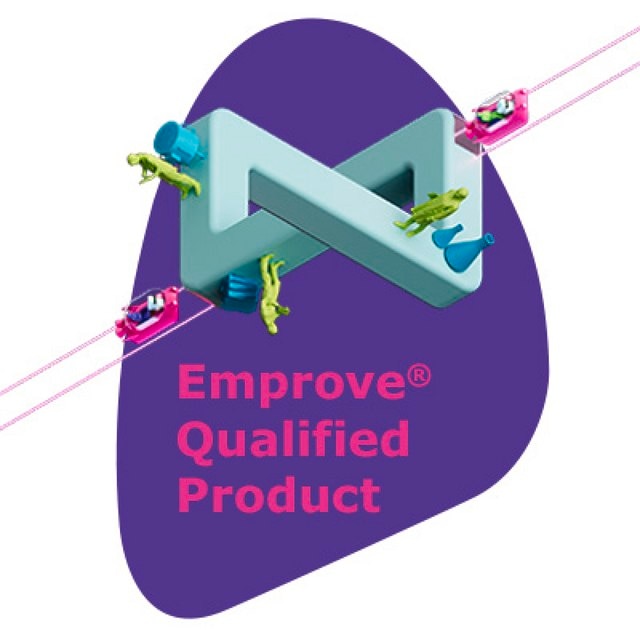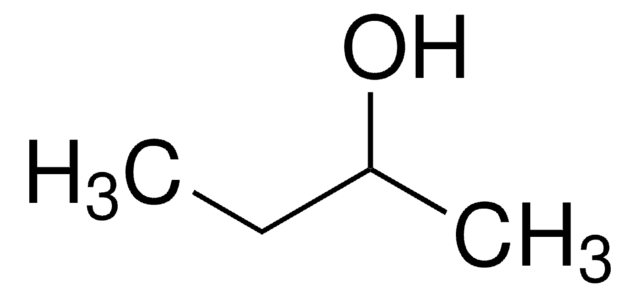8.07068
Propionitrile
for synthesis
Synonym(s):
Propionitrile, Ethyl cyanide
About This Item
Recommended Products
vapor pressure
50 hPa ( 20 °C)
Quality Level
assay
≥99.0% (GC)
form
liquid
autoignition temp.
515 °C
potency
39 mg/kg LD50, oral (Rat)
40-56 mg/kg LD50, skin (Rabbit)
expl. lim.
3.1-14 % (v/v)
pH
10 (20 °C, 50 g/L in H2O)
bp
97 °C/1013 hPa
mp
-92 °C
transition temp
flash point 12 °C
density
0.782 g/cm3 at 20 °C
storage temp.
2-30°C
InChI
1S/C3H5N/c1-2-3-4/h2H2,1H3
InChI key
FVSKHRXBFJPNKK-UHFFFAOYSA-N
Application
- Fructose-Based Surfactant Synthesis: Propionitrile is utilized in the synthesis of fructose-based surfactants, offering environmentally friendly solutions in the detergent industry and showcasing its potential in green chemistry applications (Lin et al., 2024).
- Water Filtration System Application: The application of propionitrile derivatives in water filtration systems, specifically for manganese removal, demonstrates its role in enhancing water purification technologies, contributing significantly to environmental management (Basirun et al., 2023).
- Supercapacitor Development: Propionitrile is a key component in the development of safe and high-performance supercapacitors, using nonflammable electrolytes to improve energy storage systems, which is crucial for advancing renewable energy technologies (Van T Nguyen et al., 2023).
- Electro-photochemical Reactivity in Organic Synthesis: Propionitrile is involved in catalyst-free electro-photochemical processes, facilitating the synthesis of complex organic compounds like oxazoles and pyrroles, which are essential for pharmaceutical and materials science research (Maiti et al., 2023).
Analysis Note
Density (d 20 °C/ 4 °C): 0.781 - 0.783
Identity (IR): passes test
signalword
Danger
Hazard Classifications
Acute Tox. 2 Dermal - Acute Tox. 2 Oral - Acute Tox. 4 Inhalation - Eye Irrit. 2 - Flam. Liq. 2
Storage Class
3 - Flammable liquids
wgk_germany
WGK 1
flash_point_f
42.8 °F - closed cup
flash_point_c
6 °C - closed cup
Certificates of Analysis (COA)
Search for Certificates of Analysis (COA) by entering the products Lot/Batch Number. Lot and Batch Numbers can be found on a product’s label following the words ‘Lot’ or ‘Batch’.
Already Own This Product?
Find documentation for the products that you have recently purchased in the Document Library.
Our team of scientists has experience in all areas of research including Life Science, Material Science, Chemical Synthesis, Chromatography, Analytical and many others.
Contact Technical Service





